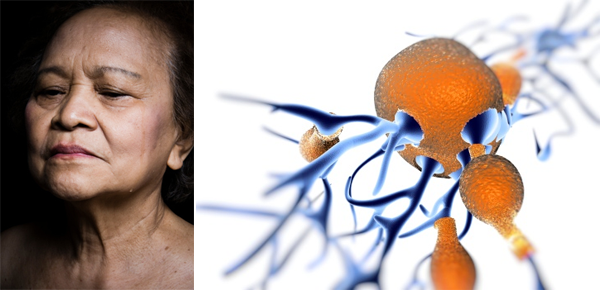Jul 26, 2024
Jul 26, 2024

Alzheimer's Disease is named after Dr. Alois Alzheimer (1864-1915), a German neurologist, who in 1906 described changes in the brain tissue of a woman who died of an unusual mental illness. This disease is marked by the loss of cognitive (thought, memory, language) ability, generally over a period of 10 to 15 years.
Alzheimer's disease (AD) is a progressive condition in which nerve cells in the brain degenerate, and the size of the brain substance shrinks. AD is the single most common cause of dementia, i.e., a decline in all types of mental activity. Earlier, AD was classified as presenile dementia, but is now responsible for 75 percent of dementia cases in people over 65 years of age. In AD the progressive impairment of memory, and cognitive functions, ultimately leads to a vegetative state. Impairment of short-term memory (STM) is the first symptom of the disease, whereas, long-term memory (LTM), i.e., retrieval of distant memories remains relatively preserved.
AD is marked by atrophy of the cerebral cortical and subcortical neurones,
Statistics are quite alarming. According to WHO estimates 3.7 million Indians suffer from AD, which is 22 percent of the global patient load. More than 50 percent people with AD live in the Developing World, which is expected to rise to over 70 percent by 2025. Seventy percent of all dementia patients can be attributed to AD. (Ref: India Today, Oct. 8, 2012). People with heart disease and diabetes are more prone to the disease. With gradual loss of memory, thought, and language the person is unable to carry out daily chores of life. The causes of AD are not fully known, Perhaps genetics and family history have a role to play.
Stages of the Disease
Three stages have been identified. However, the rate of progress, ranging from 2 to 10 years varies from person to person. Stage III is the stage of total dependence and inactivity. It is marked by losing control on body functions. One may be confined to a wheelchair or bed, with a vulnerability to infections.
Treatment
Presently there is no cure for Alzheimer's disease. Drugs employed to check further progress of the disease are: Denepezil, Galantamine, Memantine, and Rivastigmine. Symptomatic treatment for depression, insomnia, and agitation is desirable. Role of drugs like Seligiline, and efficacy of Vitamin E is under scrutiny.
Image (c) Gettyimages.com
11-Oct-2012
More by : Dr. Frank S. K. Barar

|
Herewith some additional information about Alzheimer's Disease (AD): A British team of scientists from King's College, London (2010) is developing a simple blood test which could predict AD up to 10 years before symptoms appear. They found very high levels of a blood protein called "clusterin" in individuals even 10 years before the first symptom of AD apears. This would allow a much earlier diagnosis and institution of treatment of the disease. Lately, the British-Japanese duo --- John Gurdon (Britain) and Shinya Yamanaka (Japan) --- have won the Nobel prize in Medicine (2012) for "stem cell research". Their findings have revolutionised our understanding of how cells and organisms develop. Growing replacement tissue in the body may hold hope for victims of Alzheimer's and Parkinson's disease (Ref: TOI, Oct.9, 2012). |